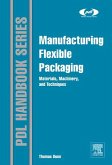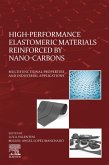In "Glass Manufacture," Walter Rosenhain offers a comprehensive exploration of the science and technology behind glass-making, blending an analytical approach with accessible prose. The book delves into the historical evolution of glass production, highlighting its roots in ancient civilizations before tracing its development into a modern industry. Rosenhain employs a mix of empirical data and vivid illustrations to elucidate complex processes, making the text an invaluable resource for both scholars and practitioners in the field of materials science. The meticulous details on the chemical and physical properties of glass serve to enrich the reader's understanding of its diverse applications, from everyday objects to cutting-edge technology. Walter Rosenhain, a distinguished scientist and expert in materials, was deeply influenced by his background in both chemistry and engineering. His extensive research and experience in glass science not only informed his writing but also revealed his passion for bridging the gap between academic inquiry and industrial practice. Rosenhain's commitment to advancing the understanding of glass is evident in his precise and engaging narrative that demystifies the complexities of glass manufacture. For readers interested in materials science, industrial history, or the art and science of glass, "Glass Manufacture" is a must-read. Rosenhain's work transcends traditional academic boundaries, inviting both novices and experts to engage with the intricate processes that define this remarkable material. This book stands as a testament to the enduring significance of glass in both our lives and industrial innovation.
Dieser Download kann aus rechtlichen Gründen nur mit Rechnungsadresse in A, B, BG, CY, CZ, D, DK, EW, E, FIN, F, GR, H, IRL, I, LT, L, LR, M, NL, PL, P, R, S, SLO, SK ausgeliefert werden.









